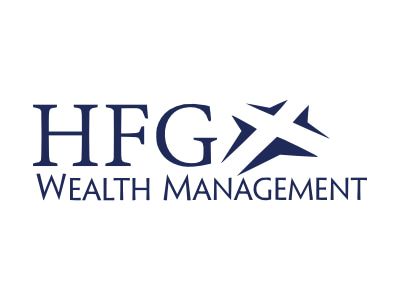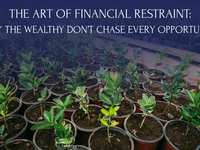- Categories :
- More
- Home Page
- All About Kids
- Apartments & Rentals
- Automotive & Cars
- Best of The Woodlands
- Between The Trees
- Blogs
- Business Directory
- Business to Business
- Car Dealers Guide
- Church Guide
- Classifieds
- Commercial Real Estate
- Community Services
- Contests
- Dental Guide
- Education & Schools
- Electronics & Computers
- Email Lists
- Employment Guide
- Entertainment & Arts
- Events Calendar
- Family Life
- Food & Drink
- Government
- Health & Medical
- Home Décor
- Home Improvement
- Homes For Sale
- Hotels Guide
- Industry & Research
- Insurance
- Internet & WWW
- Jobs Market
- Legal Services Guide
- Log-In - Register
- Marketplace
- Media Kit - Advertising
- Money & Finance
- Music & Nightlife
- News
- Parks Guide
- Patio Dining
- Personal Care & Beauty
- Pets
- Photo Galleries
- Podcasts
- Private School Guide
- Professional Services
- Real Estate Directory
- Religion
- Relocation Guide
- Restaurant Guide
- Shopping Guide
- Specials & Coupons
- Sports
- Sports Directory
- Summer Camp Guide
- Travel
- Video Directory
- Visitors Guide
- Wedding Guide
- Yard & Garden
- Blogs /
- Money, Finance & Insurance /
- HFG Wealth Management /
- What if the Experts Are Wrong (Again)? Finding Confidence Beyond Stock Market Predictions
What if the Experts Are Wrong (Again)? Finding Confidence Beyond Stock Market Predictions
By:
 HFG Wealth Management, LLC
| Published 09/22/2025
HFG Wealth Management, LLC
| Published 09/22/2025

Unfortunately, while these experts may possess degrees and experience that allow them to make somewhat reliable educated guesses, they aren’t infallible. They may hit the mark 90% of the time, but a 10% margin for error is significant when it impacts your financial goals. More importantly, the best these predictions can offer is a counterfeit peace, a truth that becomes all too evident when you realize you’ve put your trust in someone who got it wrong.
Consider these notable examples of trending headlines and predictions that went wrong, and how you can replace speculation with a purposeful wealth strategy.
Sidestep False Securitys
Irving Fisher, a renowned economist, bestselling author, and Yale professor in the early 1900’s was widely regarded as a trusted authority. After successfully predicting an economic expansion in 1912 and a recession in 1913, he gained enough recognition to garner a national audience who tuned in for his many predictions in the fall of 1929:
In September, “There may be a recession in stock prices, but not anything in the nature of a crash.”
In October, “I expect to see the stock market a good deal higher than it is today within a few months.”
And again, on October 23rd, “Security values in most instances were not inflated.”
Of course, the Wall Street Crash of October 24th marked the beginning of the Great Depression, which would go on to last 10 years.
Market forecasting is a valuable tool, but it must be paired with risk mitigation strategies and a wealth management plan that can adapt to evolving markets. Diversification, asset allocation, insurance, and proactive tax management each play a vital role in holistic wealth management. The only thing we can say with certainty is that the market will shift, again and again. The predictions of one or many professionals ultimately can’t replace prudent financial strategies.
Look Beyond “The Next Big Thing”
“These supbrime assets are so riskless that their capital for holding them should be under 2 percent.” – Fannie Mae, 6/10/2004
It would take four more years for the error in this statement to be fully exposed, with Federal Reserve Chairman Ben Bernanke underestimating the crisis as late as 2007. The promise of the American Dream and too-good-to-be-true lending incentives enticed many to overlook risky mortgages. As the US housing bubble burst, borrowers began missing mortgage payments en masse, culminating in approximately 3.1 million Americans filing for bankruptcy in 2008 alone.
Shiny object syndrome takes many forms, whether it be timing the market (or rather, attempting to), high-yield bonds, penny stocks, ETFs, or anything else that promises a fast reward. While some risk in investing is necessary, the terms of that risk must always be evaluated through the lens of your long-term financial strategy. By learning how and when to say no and only choosing opportunities that will advance your goals and align with your values, wealth becomes what it was always meant to be: a tool, rather than a destination.
Ignore the Fear Mongering
In 1979, a BusinessWeek cover story announced “The Death of Equities: How Inflation is Destroying the Stock Market.” After climbing steadily for a decade alongside low market returns, inflation had hit 11.3%, causing financial panic and despondency for many. Of course, this prediction proved to be entirely untrue, as 1982 ushered in an 18-year market rally.
If there’s any lesson to be taken from this, it’s undoubtedly the value of patience, steadfastness, and unemotional investing. A wise steward invests in habits for wealth, rather than reactivity to the headlines, trusting that peace and financial confidence come from careful, informed strategy. When storms hit, as they inevitably will, peace can still be found in the knowledge that you have done everything necessary; with the proper planning, you can adjust as needed, but only if those adjustments will serve your goals, rather than feeding fear.
The Better Path: Purpose-Driven Planning
HFG was founded on the belief that wise financial stewardship is essential to living a life of purpose, peace, and freedom. To that end, we partner with clients to discover their core values and develop a wealth strategy that integrates their deeply held beliefs with their goals and unique circumstances. By aligning tangible assets with what matters most to each person we meet, we are able to create long-term wealth strategies that facilitate a purposeful, peace-filled life.
The experts may be right, or they may be wrong. With the right financial guidance, it doesn’t matter. When you’re ready to build a life that reflects your values, we’re ready to help you fund it with intention.
















-
Menu Links :
- Blogs Home
- News
- Events
- Photos
- Videos
- Start Your Blog
